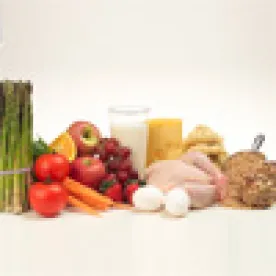The U.S. Food and Drug Administration this week issued a request for public comment on the use of the term "natural" in the labeling of food products. This represents the first time in 22 years that the FDA has indicated an intention to revisit its 1993 non-binding guidance regarding the definition of the term "natural," or to potentially engage in the formal rulemaking necessary to issue a binding and comprehensive definition of the term. Specifically, the FDA has asked the public to provide information and comment on the following:
-
Whether it is appropriate for the FDA to define the term "natural";
-
Recommendations for how the agency might define the term "natural"; and,
-
Recommendations for how the agency might determine the appropriate use of the term on food labels.
While the request for comment does not guarantee further action by the FDA, it could be the first step in a process that would help reduce the risk of litigation in the food industry. In the last 5 years, manufacturers of food products labeled "Natural," "All Natural," and "100% Natural" have been regular targets of consumer class action lawsuits. This spike in litigation is largely the result of uncertainty surrounding the definition of the term "natural."
In 1993, the FDA issued non-binding guidance indicating that it understood the term "natural" to mean "[n]othing artificial or synthetic (including all color additives regardless of source) has been included in, or has been added to, a food that would not normally be expected to be in the food." This definition left much to interpretation, particularly with what would or would not "normally be expected to be in food." It also left more modern issues entirely unaddressed, such as the status of food products derived from GMO plants or subjected to modern processing and manufacturing methods.
The gaps in the definition have forced many food manufacturers to take a gamble regarding what does and does not qualify as a "natural" product, and opened the door for class action plaintiffs to file lawsuits second-guessing the manufacturers' ultimate decisions. In a few instances, the food manufacturers' vulnerable position has been exacerbated by the issuance of FDA warning letters. For example, in the absence of a comprehensive "natural" definition, many food manufacturers have included limited amounts of sodium acid pyrophosphate (SAPP), a common leavening agent, in their "natural" products, because it was allowed by the USDA's formal definition of "organic." However, in September, 2014, the FDA issued a warning letter to a New York-based food manufacturer indicating that the use of SAPP did not meet the FDA's non-binding definition of "natural." In the following months, class action lawsuits were filed across the country against companies that were using SAPP in products bearing the "natural" label.
The FDA's request for comment represents an important opportunity for food manufacturers to explain to the FDA why a binding and comprehensive definition of the term "natural" is necessary, and to provide input into what that final definition will be. The FDA will begin accepting comments from the public today, both electronically and by mail. A copy of the FDA's statement can be found at the following web address:
http://www.fda.gov/Food/





 />i
/>i
